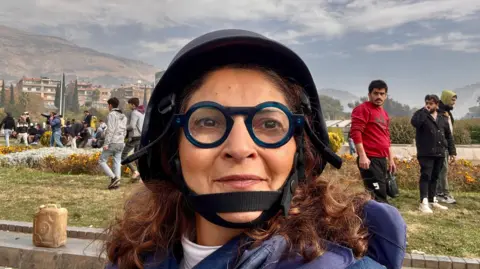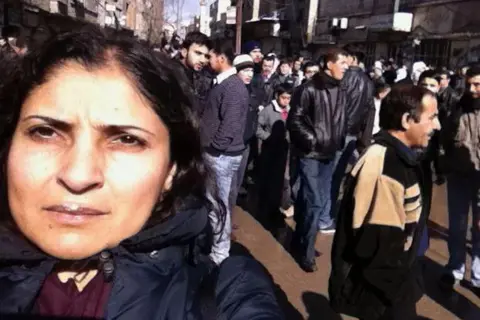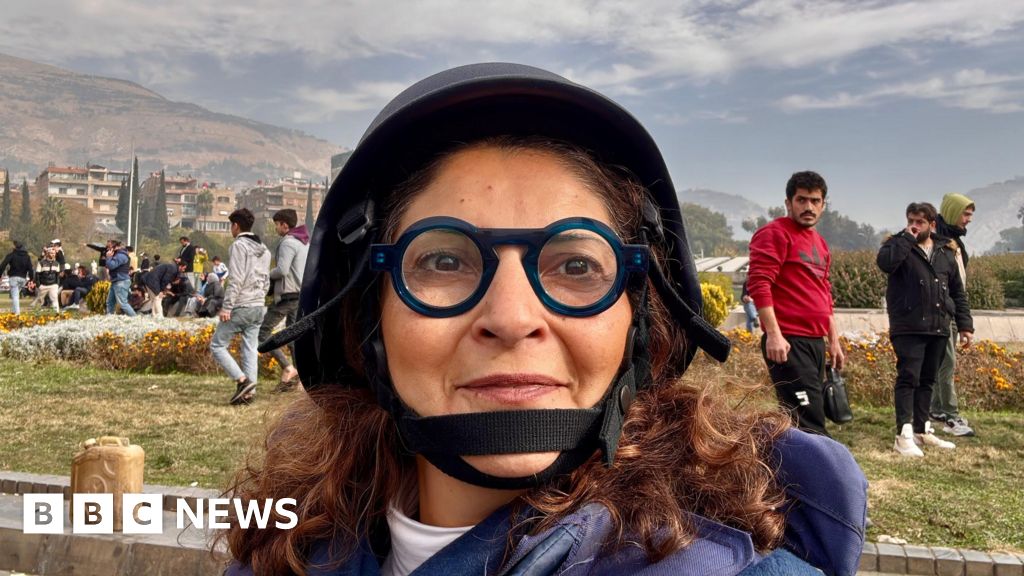 BBC
BBCEleven years ago, I left Damascus not knowing if I would ever be back.
Back then, the city was in the grip of war. Intense violence, which followed President Bashar al-Assad’s brutal crackdown on pro-democracy protests, engulfed the capital. At any moment you could be shot dead on the streets.
I reported for the BBC from inside Syria on the very first protests in 2011. I reported on the “day of rage”, then on shootings, killings, disappearances, air strikes and barrel bombs – until I myself became numb and lost hope.
I was arrested several times. The regime limited my movements and threatened me, and in 2013 I had to leave.
Over the past decade, I’ve lived through a rollercoaster of hope and despair, watching my country ripped apart from abroad. Death, destruction, detention. Millions fleeing and becoming refugees.
Like many Syrians, I felt as though the world had forgotten about our country. There was no light at the end of the tunnel.
When people took to the streets back then to call for the toppling of the regime, I never imagined it would actually happen, given President Assad’s powerful backers in Russia and Iran.
But on Sunday, at the blink of an eye, everything changed.

Last week, I was in Beirut reporting on the fall of Aleppo and Hama to anti-Assad militants, but I didn’t really think that would bring about change. I thought Syria would be split in two, with Damascus and the coastal cities remaining in Assad’s hands.
After midnight on Saturday, things suddenly turned around. By 04:00, it was announced that the regime had fallen and Assad had gone. As I’m writing these words now, I still can’t believe that this is a reality.
I had been trying over the weekend to get clearance to enter the country from one of the most feared secret police organisations in Syria, called the Palestine Branch. They had an arrest warrant in my name, due to my reporting on the protests.
I couldn’t forget being detained during the first week of the uprising in 2011. I had witnessed men lined up to be beaten, fresh blood on the floor and screams of torture. A security officer grabbed my mouth and said he would “cut it for [me]” if I said a word.
On Sunday, I rushed with my colleagues down to the Syrian border. Now there was no-one at Palestine Branch – neither the security officers nor the investigator who threatened me when I last tried to enter Syria in January. He told me he could bury me seven floors underground and no-one would know. I wondered where he was now. How did he feel about the thousands he interrogated and threatened? Or those tortured to death in Assad’s prisons?
I crossed the border into Syria without fear of being detained. As I went on air for the BBC from Damascus, I reported without fearing for my safety.
There’s a sense of joy in the air in Damascus, despite worries about Islamist rebels being in control and whether they’ll ensure safety in the country. Hayat Tahrir al-Sham (HTS) fighters have protected public institutions from looting after mobs stormed the presidential palace, and prisoners have been freed.
An HTS group met with Christian residents of Bab Touma, a neighbourhood in Damascus, to give assurances they were not seeking to limit their freedoms.
Some in the Alawite community – who long supported Assad – are worried about what will happen to them, but so far there haven’t been any reports of sectarian violence.
Since Sunday, friends and family members who fled have been texting me, saying they are coming back. It seems everyone wants to return home.
My central Damascus apartment was destroyed in 2013 when I left, after authorities deemed me a traitor and banned me from living there. Security forces and local officials broke in and destroyed its walls and ceilings.
Last month I was able to regain ownership of it after paying thousands of dollars in bribes. It will take time to rebuild it, but that’s what I will do.
And perhaps when it is ready, Syria will be ready for all of us to come back.


Leave a Reply